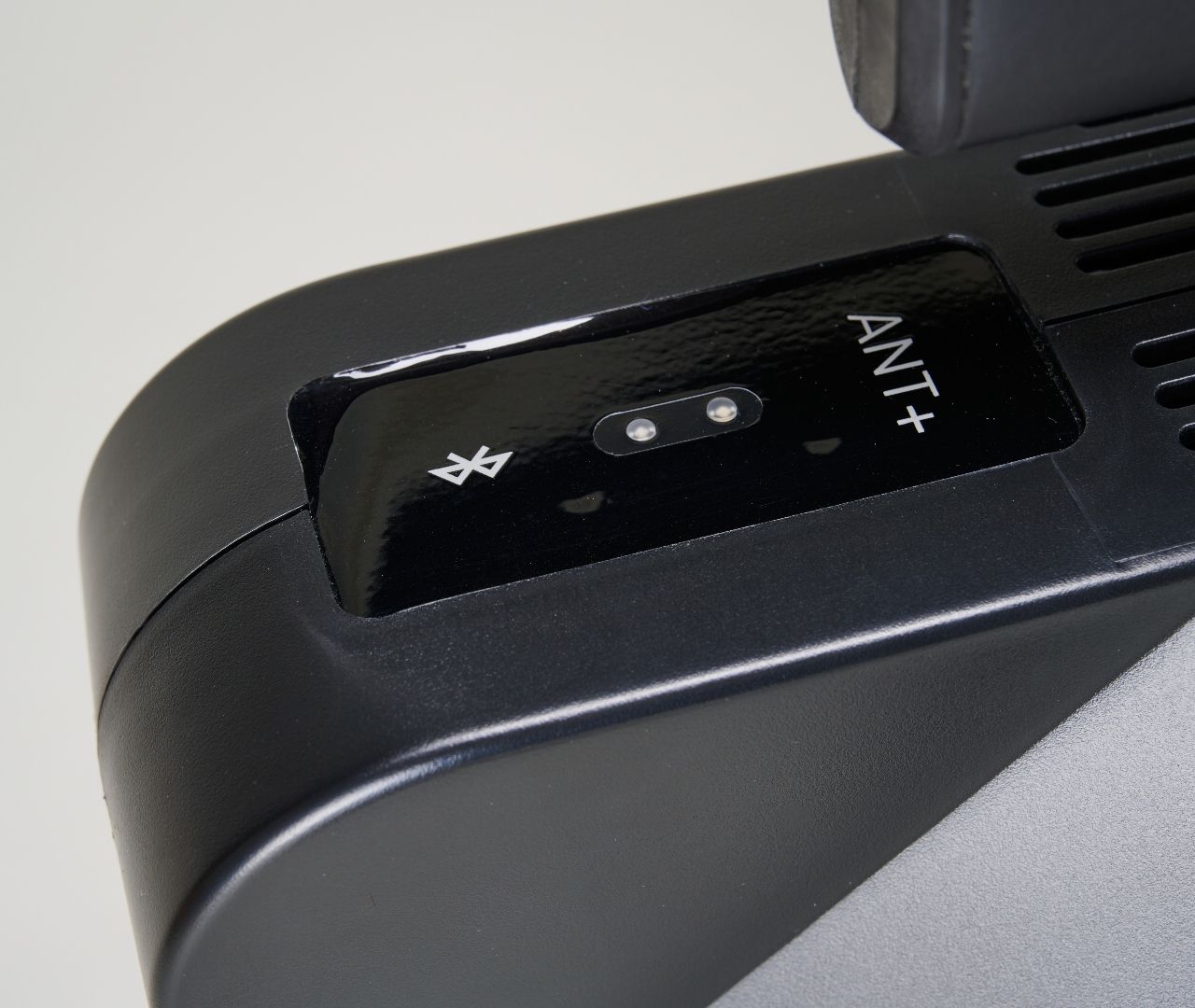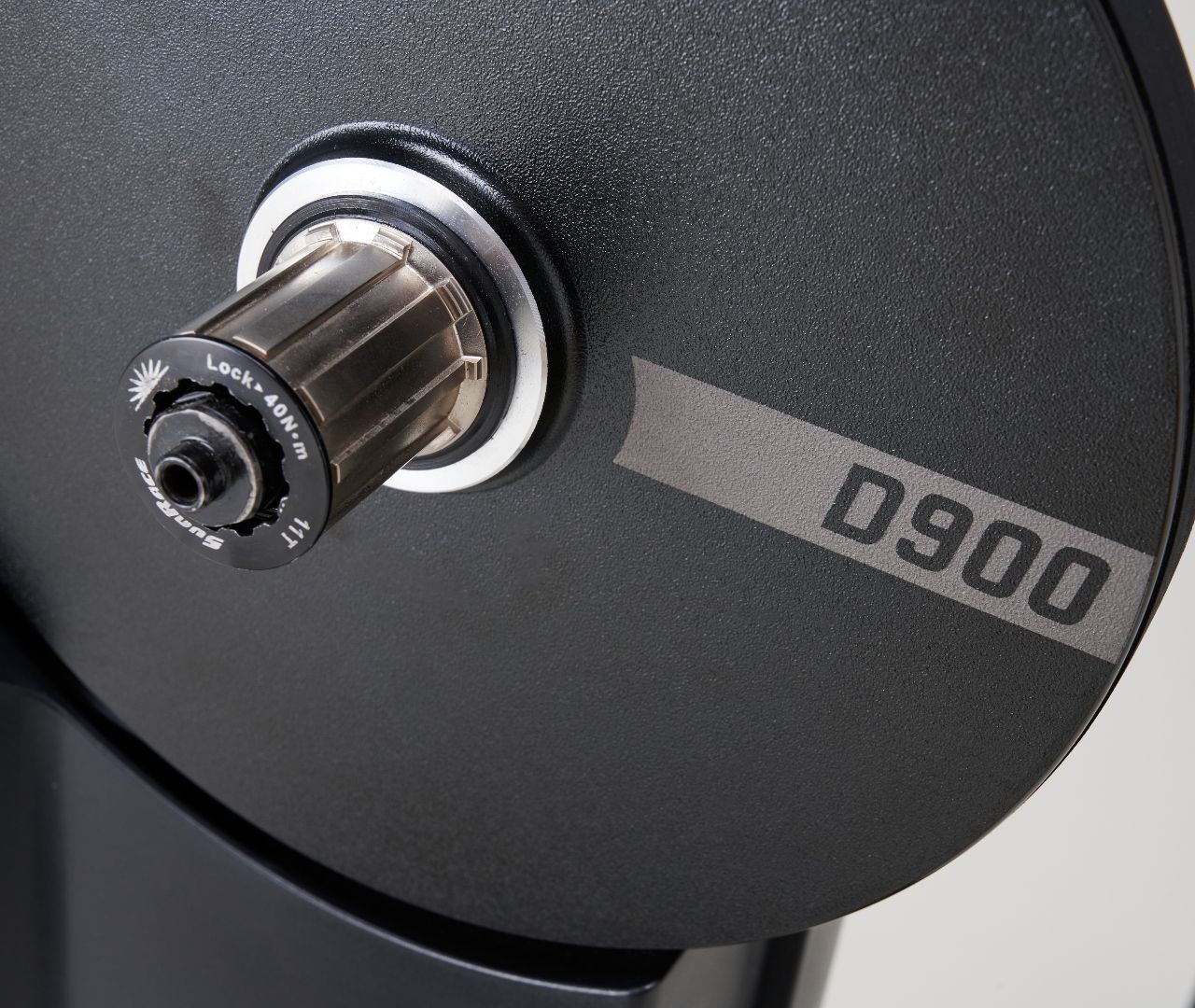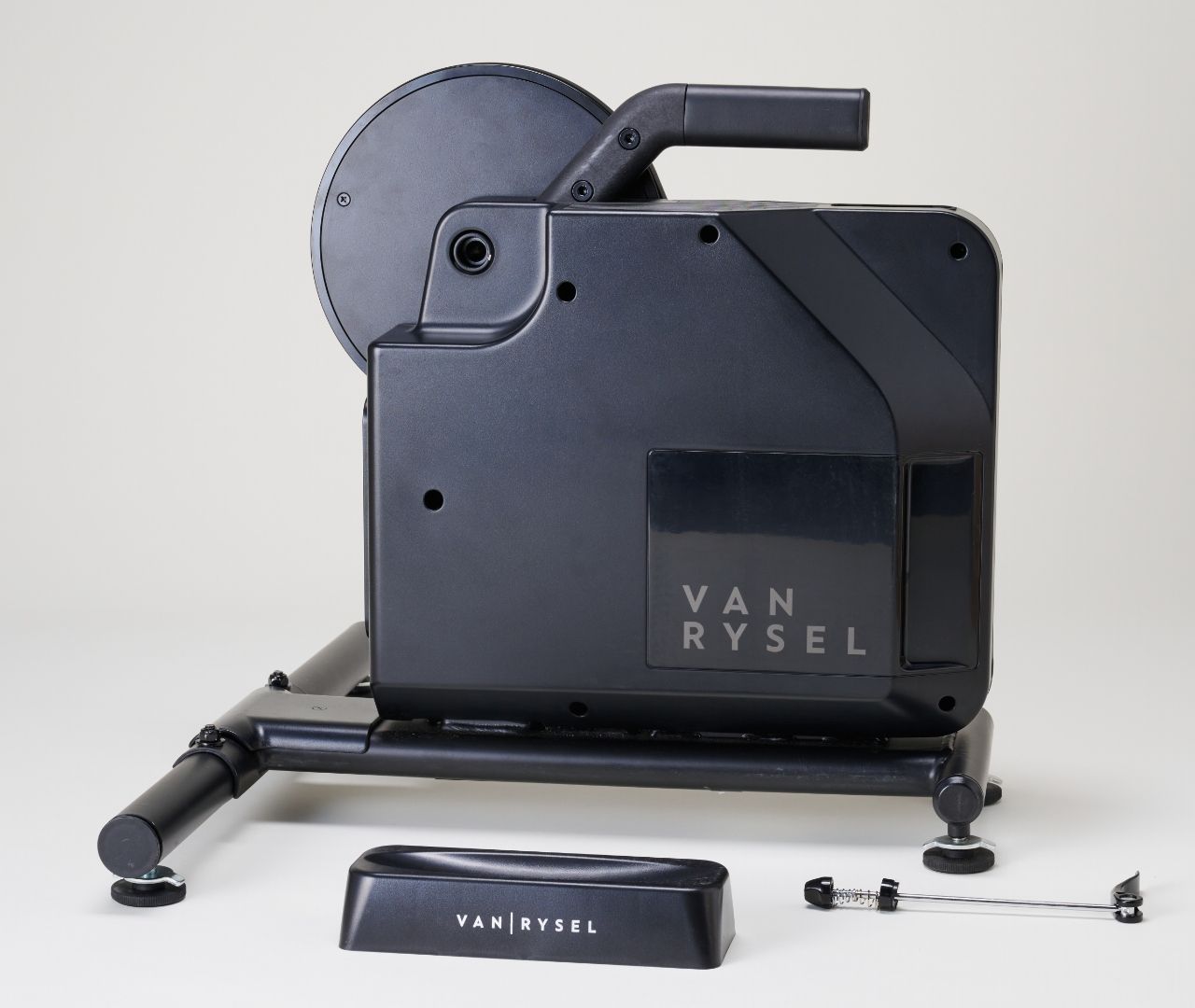Pro-level turbo at an amateur-level price? We review the Van Rysel D900 Turbo Trainer
Can Decathlon’s high-spec, low-price smart trainer compete with the likes of Wahoo, Tacx and Elite?

The Decathlon D900 Trainer offers a huge amount of performance potential for a very low price. Functionality-wise it’s really solid and offers great value, however, it is let down by poor power and cadence accuracy, with no capacity to calibrate the trainer.
-
+
Great performance for the price
-
+
Very user friendly
-
+
Quiet
-
-
Accuracy is not always consistent
-
-
No cassette
-
-
Cadence measurements are patchy
- -
You can trust Cycling Weekly.

The Decathlon D900 smart trainer is a high-end trainer from Decathlon that boasts some serious spec at a laughably low cost. It uses a 5.2kg flywheel to generate electromagnetic resistance of up to 2000 watts and can simulate up to a 20% incline virtually. It has a claimed accuracy of +/-2%, meaning that at 200 watts it should read between 196 and 204 watts.
It comes fitted with a Shimano road 8/9/10/11/12 speed compatible freehub, while a SRAM XDR hub can be purchased separately. It also features adaptors for QR 130-135 x 5 mm and Thru Axle 142-148 x 12 mm, but states that it is not compatible with the Cervelo P5 or the Cube Attain.
The total weight is 20.5kg, but there is a carry handle at the top that makes moving the trainer around much easier. The legs feature height adjustable feet at each corner to ensure the trainer and bike are level. A quick release, front wheel riser, power cable for EU/UK/US/Asia, and multitool for all adjustments are included. However, a cassette is not.
In use
Setting up the D900 Trainer was easy. The front foot needs fitting using the supplied nuts and bolts, then the cassette goes on. Select the appropriate end caps, plug it in and you’re good to go.
Riding the D900, it feels incredibly stable thanks to its large platform. Using SIM Mode (where resistance is applied by applications such as Zwift to mimic the resistance of virtual gradients) the changes in resistance and responses to gradients were really good, and on par with some more expensive smart trainers out there.
In ergometer (ERG) mode (where you’re training to a preset power level), the response to changes in resistance is decent, but quite often there is an overshoot in resistance and wattage when going from easy to high intensity, this is mirrored by an overcompensation in lack of resistance when going the other way. For the price, however, it performs very well in ERG mode, and does so with very little noise.
One area that is a concern though is the power reading. Using a 4iiii Precision 3+ Pro dual-sided power meter for comparison, the D900 reads often between 12-15% higher. I was surprised it read so much higher given that smart trainers, which record power at the hub, often read lower than pedals or cranks.
Although the power does not appear to be that accurate, fortunately, it is fairly consistent across the power curve. So, it can be useful for tracking personal progress and performance relative to its own readings. There were also some issues with cadence readings when dropping below 80 RPM or above 100 RPM, or when changing intensity significantly.
Value
When it comes to value, the Decathlon D900 is a real standout. On paper, the technical specifications are mostly on par with far higher spec turbo trainers such as the Wahoo Kickr V6 (£1099.00), Tacx Neo 2T (£1199.00), and Elite Justo (£999.00).
However, accuracy is lower at 2%, putting it more in line with the likes of the Tacx Flux S (£599.99) and Elite Suito-T (£599.99) which are 3 and 2.5% accurate respectively. In terms of the level of performance for the price, there isn’t another turbo trainer at this price that can compete with the D900, it is simply better value than anything else out there.
If you need higher accuracy and better overall performance, it may be worth splashing out on a higher-end trainer.
Conclusion
The Decathlon D900 Smart Trainer has some impressive stats and offers great levels of performance, all for a price that is considerably less than its competitors. However, the power accuracy is not great, although it remains fairly consistent, and cadence readings are patchy, letting it down a bit.
Specs
Four height adjustable feet
2000w resistance
2% accuracy
20% simulated incline
Shimano/SRAM 9/10/11/12 speed compatible
5.2kg flywheel
20.5kg
2-year warranty

Thank you for reading 20 articles this month* Join now for unlimited access
Enjoy your first month for just £1 / $1 / €1
*Read 5 free articles per month without a subscription

Join now for unlimited access
Try first month for just £1 / $1 / €1
Get The Leadout Newsletter
The latest race content, interviews, features, reviews and expert buying guides, direct to your inbox!
Andy is a Sport & Exercise Scientist, fully qualified and experienced cycling coach, personal trainer and gym instructor. He spent 3 years on the road riding for a UCI cycling team and 7 years as a BC Elite rider.
After graduating in 2020 with first-class honours in his Sport & Exercise Sciences BSc, he continued to pursue his interest in research in the field of sport science alongside setting up his coaching business, ATP Performance, and working for USA-based firm, Wahoo Sports Science. He balanced this with racing at international level, competing in prestigious events such as the Tour of Britain and the Volta a Portugal.
-
 Is Mathieu van der Poel winning races “in zone 2” helping or hindering cyclo-cross?
Is Mathieu van der Poel winning races “in zone 2” helping or hindering cyclo-cross?The Dutch world champion has turned up off-road now, and immediately won twice. Is this fun?
By Adam Becket Published
-
 Tom Pidcock joined by brother Joe at Q36.5 Pro Cycling as team finalised for 2025
Tom Pidcock joined by brother Joe at Q36.5 Pro Cycling as team finalised for 2025Pidcock's coach Kurt Bogaerts also confirmed as team's head of technical performance
By Adam Becket Published
-
 'He was never afraid to gamble' - Assessing Patrick Lefevere's legacy
'He was never afraid to gamble' - Assessing Patrick Lefevere's legacyThe Belgian is to leave Soudal Quick-Step after forty years in cycling management
By Adam Becket Published


